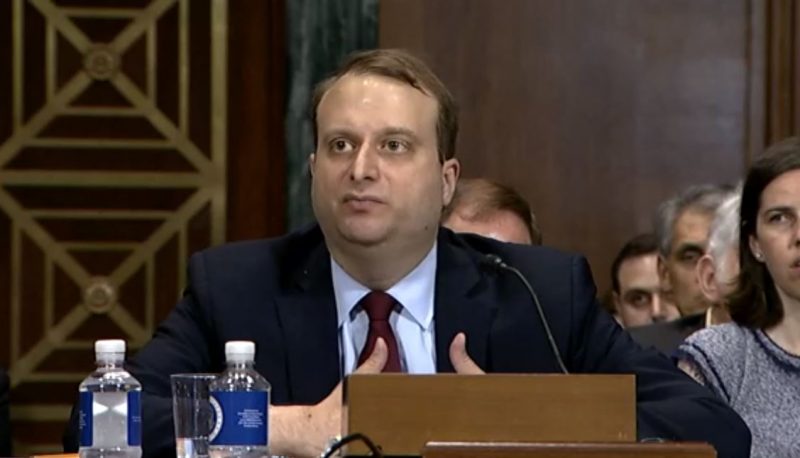“Confirmed Judges, Confirmed Fears” is a blog series documenting the harmful impact of President Trump’s judges on Americans’ rights and liberties. Cases in the series can be found by issue and by judge at this link.
Trump Judge Steven Menashi cast the deciding vote in a 2-1 decision that affirmed a lower court and rejected a class of Connecticut commercial cleaners’ claims of illegal wage diversion and violation of a state’s minimum wage law. The September 2021 decision in Mujo v. Jani-King International, Inc. left intact a status quo that—as the dissent noted—the plaintiffs described as “akin to indentured servitude.”
Simon Mujo and Indrit Muharremi, both operators of Jani-King commercial cleaning locations, brought suit on behalf of a class of Jani-King commercial cleaning operators in Connecticut. The Jani-King corporation requires franchise operators to sign an agreement allowing the company to deduct a series of fees from the operators’ income. As a result of these deductions, the cleaners often receive less than a third of their location’s total income. The cleaners claim that this arrangement violates Connecticut’s minimum wage law generally prohibiting employers from diverting or reducting an employee’s wages. The cleaners also claim that Jani-King violated Connecticut’s anti-kickback laws, which bar employers from demanding fees as a condition of employment.
The district court dismissed the cleaners’ minimum wage claim, finding that the total customer revenue the cleaners received was not a wage, and so Jani-King’s deductions did not violate Connecticut’s law. The court also ruled against the cleaners’ anti-kickback claim, characterizing the cleaners’ contracts with Jani-King as franchise agreements, which are not subject to employment protections. The cleaners appealed.
Trump Judge Menashi cast the deciding vote in a decision by a Second Circuit panel upholding the lower court’s decision. The majority stated that they would defer to the contracts, which it claimed suggested that only the cleaners’ earnings after deductions count as wages. The majority also upheld the district court’s decision that the contracts were franchise agreements and therefore did not violate Connecticut’s anti-kickback laws. The majority claimed its decision relied on settled law, and it did not need to certify any question of law to Connecticut courts for further clarification.
Judge Guido Calabresi firmly dissented, stating that he would have certified the question of whether the operators were employees or franchisees (or some sort of hybrid) to the Connecticut Supreme Court. Federal courts generally seek guidance from state courts through certification when they encounter questions of state law without clear precedent. Judge Calabresi maintained that the majority violated this principle by crafting its own novel interpretation of state law.
The Connecticut Supreme Court has never ‘addressed” whether state law classifies franchise operators such as the cleaners in this case as franchisees or employees, Calabresi explained. Answering this question is critical to determining whether Jani-King violated Connecticut’s anti-kickback and minimum wage laws by illegally withholding wages. Calabresi wrote that the majority improperly substituted its own policy considerations in place of state law, violating a fundamental tenet of “judicial federalism” – deferring to state courts on interpretation of state law .
Under the separation of powers laid out by the Constitution and decades of precedent, state courts interpret their own laws. The Connecticut Supreme Court could well have reached a different conclusion based on its understanding of Connecticut law and the underlying factual considerations. Instead, due to Trump judge Menashi’s deciding vote, the Second Circuit based its interpretation of Connecticut law on a conservative, anti-regulation philosophy, damaging workers’ rights generally. This case reflects the importance of the Senate continuing to confirm Biden judicial nominees who will respect the authority of state courts and protect the rights of workers, as part of our fight for our courts.
Note: People For law student fellow Andrew Kliewer prepared the initial draft of this post.

